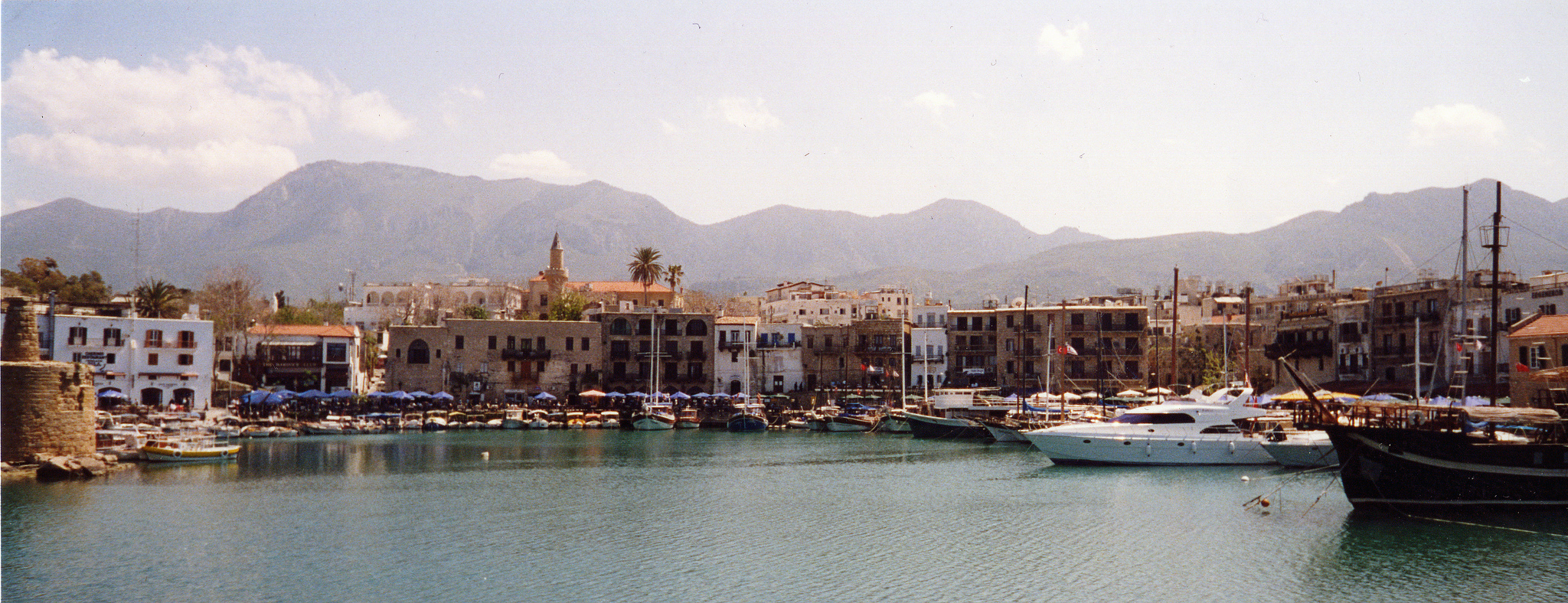By Pasquale Gianni

The island nation of Cyprus is a special place, to say the least. Let’s face it, there is something very special about the Mediterranean region in general: its people, its food, its climate and its beauty. In these aspects alone, Cyprus is much like the rest of the Mediterranean, but in others it is a place truly unlike any other.
It is a place where you can eat fresh fish out of the sea and exotic fruits and homemade cheeses that will bring joy to your life. It is a place where the people have a certain warmth and desire to give, love and live. It is a place with endless historical sites, pristine beachfronts, year round sun and a mesmerizing landscape. And while these are all characteristics that make Cyprus a wonderful place to live or visit, they are not what make it unique.
Most Americans have never even heard of Cyprus, a small island nation in the eastern Mediterranean just 40 miles south of central Turkey. Geographically, it is almost surrounded by Asia. Politically, however, it is a new member-state to the European Union, located just a puddle jump away from the conflicts in Syria, Lebanon and Israel. In fact, British Prime Minister, David Cameron, just announced that the country would be ramping up airstrikes on ISIS in Syria using jets launched from their military base in Cyprus.
Here is where things get complicated: while the entire island is technically considered part of the EU, only about 60 percent is controlled by the Republic of Cyprus and comprised of primarily ethnic Greeks (Greek Cypriots), while the northern part of the island is “illegally occupied” by Turkish forces. The ‘Turkish Republic of Northern Cyprus’ is only recognized by Turkey within the international community. The ‘green line,’ a chain-link fence surveyed by UN peacekeeping troops, separates the island (especially fascinating, the line also divides the countries’ capital, Nicosia, one of the world’s few remaining divided cities, which served as my base for the trip).
Unlike most of my excursions that consist of a hotel or Airbnb stay and trying to find my way around to the popular attractions I read in a tourist manual, this one was special. I was hosted and chauffeured around the entire island by local Cypriots, Andreas Constantinou, a professor of biology and medicine at the University of Cyprus in Nicosia and his lovely wife, Toulla, a retired business executive. Both are native-born Cypriots, but have been long-time family friends since they had lived for many years in Chicago where they still have a home. Traveling this way always makes for a truer, more authentic experience.
Nicosia’s “old city” was filled with cafes, bars, shopping and some gambling. It was also bustling with people on the Greek side. After a magnificent dinner there on my final evening, I had convinced my hosts to take me over to the Turkish side of the city. Reluctantly, they agreed to take what was for them an uncomfortable journey across enemy lines.
Greeks and Turks have, for many centuries, had a bitter and sometimes ruthless neighborly rivalry that extends much further than the ongoing conflict in Cyprus. For me, the cross was pure excitement. We walked towards the city center and were confronted with huge signs that read “border approaching” until we reached an actual pedestrian crosswalk manned by border patrol agents waiting to check passports. Let me tell you, crossing an international border on foot in a major city is not an everyday occurrence.
Once we arrived to the Turkish side, what we discovered was near abandonment: a true ‘tale of two cities.’ To be fair, it was late on a Sunday and there were many shops that were closed but very little street lighting and only an occasional pedestrian left an eerie vibe.
Due to its hazy and unofficial status, the Turkish north is a magnet for Russian money laundering interests and draws many tourists from all of Europe that come for their cheap all-inclusive beach hotels, casinos and shopping that consists of high quality, knock-off luxury goods.
There is light at the end of the tunnel with all this, though. Peace talks between the two sides are at their best point in history. John Kerry’s recent visit was a reassurance of U.S. commitment to conflict resolution, but there are a myriad of concerns that center on property disputes and shared government, among other things. What will materialize and when, well, we just have to wait and see. In the meantime, learn some of the incredibly fascinating, and unique, history of Cyprus. More importantly, make it a point to make the journey one day and take it all in. You will not regret it, I promise.





































































































































































































Bill poppe • Feb 10, 2016 at 8:03 am
Pasquale,
Very informative and interesting article about Cypress. Thank you.
Bill Poppe RH64